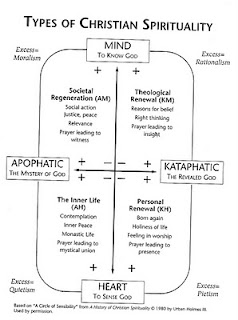question of evil (4)
"Horsley takes an interesting angle that needs processing should we wish to avoid a glib response to the question of evil and spiritual warfare."
Richard Horsley writes primarily on the dangers of depoliticising the person and message of Jesus - he contributes to an understanding of the political context within which Jesus' message and ministry is set. It is very hard to do this without addressing the question of evil. Interestingly he looks in particular at the exorcisms and their significance in illustrating that 'God is accomplishing a political as well as a religious or spiritual victory'. (2002:102)In other words:
The series of episodes in which Jesus exorcises demons and the discussions of the significance of Jesus' exorcisms in the Gospels indicate that precisely in his practice of exorcism God's kingdom is defeating Roman rule. (2002:99)He illustrates that 'warfare with Satan - was one of the principal ways that Galilean peasants as well as Qumran scribes had of explaining how they could be suffering such subjection and even violent oppression, when supposedly God was the ruler of history. Opposing forces of overwhelming superhuman strength must be responsible.' (2002:101)
This explanation of their situation offered a means, a get out clause which 'enabled Galileans and Judeans to avoid blaming themselves' (2002:107).
Is Horsley trying to down play the more common acceptance of evil in contemporary evangelical Christian thought? I don't think so. It is more a case of there being more to the gospel accounts of exorcism than initially meets the eye. Horsley takes an interesting angle that needs processing should we wish to avoid a glib response to the question of evil and spiritual warfare.
Horsley, R. (2002). Jesus and Empire: The Kingdom of God and the New World Disorder.

Comments